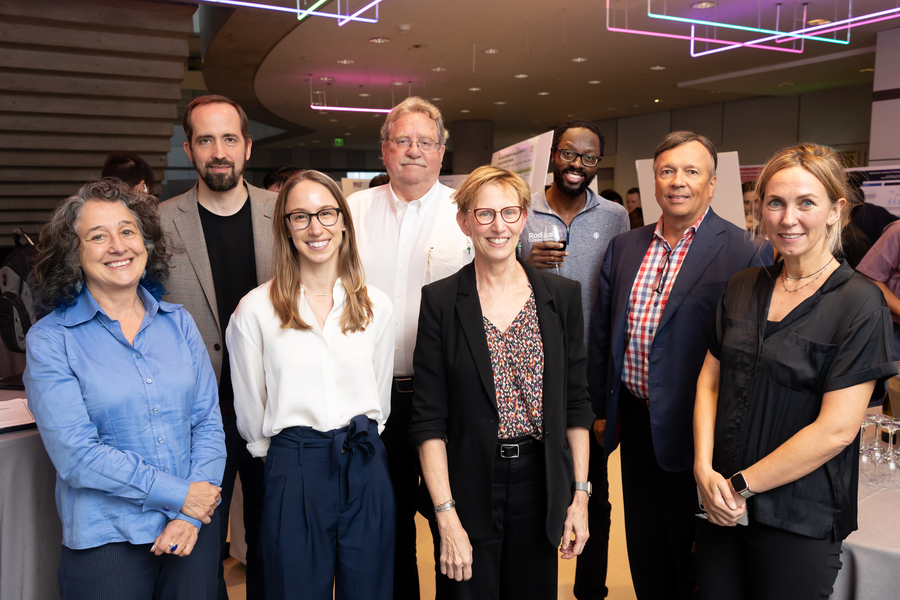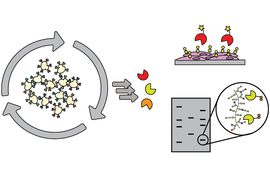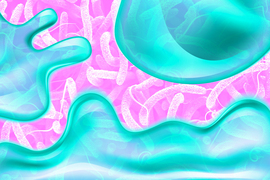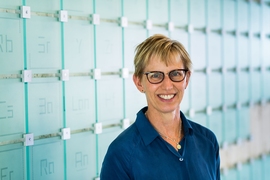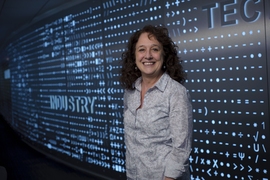On Oct. 5, the Department of Chemistry, funded by a generous donation from Frank Laukien ’94, hosted the GlycoMIT Symposium, an interdepartmental celebration of advancements in glycobiology research. Defined broadly by the National Institutes of Health, glycobiology is “the study of the structure, biosynthesis, biology, and evolution of saccharides (also called carbohydrates, sugar chains, or glycans) that are widely distributed in nature and of the proteins that recognize them.” Various applications for glycobiology research include neurobiology and aging, cancer, and infectious disease and the microbiome.
“Of the three chemical motifs involved in the recognition of pathogens — nucleic acids, proteins, and glycans — glycans are by far the most diverse and poorly understood,” said department head and Haslam and Dewey Professor Troy Van Voorhis. “By breaking new ground in glycoscience, MIT can make new discoveries about the chemical building blocks of life and pioneer new therapeutics for human health. This field is inherently multidisciplinary — combining a variety of perspectives from the chemical, biological, and physical sciences to control and measure complex glycan assemblies in living systems. It is therefore crucial that this effort involves not just chemistry, but biology, physics, and computation.”
More than 100 members of the MIT community and beyond gathered in the Bartos Theater for a series of faculty presentations and a keynote speech from Richard D. Cummings, the S. Daniel Abraham Professor of Surgery at Beth Israel Deaconess Medical Center and Harvard Medical School. Faculty presented updates on their glycobiology findings, and how these advancements pertain to research across all fields, and to humanity in general.
Following a luncheon with Laukien and School of Science dean Nergis Mavalvala, MIT faculty members Barbara Imperiali, Laura L. Kiessling, Tobi Oni, Katharina Ribbeck, Matthew D. Shoulders, and Jessica Stark each presented a 20-minute talk about their research.
After the faculty presentations concluded, attendees of the symposium gathered for a reception to enjoy hors d'oeuvres, drinks, and poster presentations on further glycobiology research from members of each of the speakers’ groups, as well as others from across the Institute.
Kiessling, who spearheaded the event alongside fellow professor of chemistry Matthew D. Shoulders, presented a talk entitled “Glycans in Health and Disease.” In the Department of Chemistry, the Kiessling Group uses chemical biology to elucidate the biological roles of carbohydrates, with a focus on learning new mechanistic concepts.
Imperiali, the Class of 1922 Professor of Biology and Chemistry, holds a dual appointment in both departments, and delivered a talk entitled “Bacterial Glycan Biology: Making Sense of the Madness.” Research in the Imperiali Group employs a multidisciplinary approach involving synthesis, state-of-the-art spectroscopy, molecular modeling, enzymology, and molecular biology to address fundamental problems at the interface of chemistry and biology.
Oni, a fellow at the Whitehead Institute for Biomedical Research, presented a talk titled “Leveraging Glycan-Dependent Epitopes for Tumor Targeting and Detection.” The Oni Lab seeks new methods of understanding, detecting, and potentially treating pancreatic cancer.
Ribbeck is the Andrew (1956) and Erna Viterbi Professor of Biological Engineering, and her talk was entitled “From Molecular Mysteries to Medicine: The Therapeutic Promise of Glycans.” Her research group’s focus is on basic mechanisms by which mucus barriers exclude or allow passage of different molecules and pathogens, and the mechanisms pathogens have evolved to penetrate mucus barriers. Her research provides the foundation for a theoretical framework that captures general principles governing selectivity in mucus, and likely other biological hydrogels, such as the extracellular matrix and bacterial biofilms.
Shoulders, the symposium’s co-organizer and a professor in the Department of Chemistry, presented a talk titled “N-Glycosylation: The Fulcrum of Collagen Proteostasis.” Members in the Shoulders Laboratory study how cells fold proteins and develop and apply next-generation protein engineering and directed evolution techniques to address biotechnology challenges.
Stark, a professor of biological engineering, presented her research on “Antibody-lectin chimeras for glyco-immune checkpoint blockade.” The Stark Group is pioneering approaches to understand and engineer the roles of glycans in the immune system in order to fill key knowledge gaps in immunobiology and develop next-generation immunotherapies. Their work is highly interdisciplinary, integrating approaches from molecular, synthetic, and systems biology, immunology, and biological engineering. They are interested in fundamental questions and therapeutic applications in multiple contexts, including cancer, autoimmunity, and infection.
